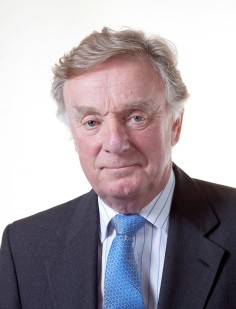DANNY LEE AND ADRIAN WAN IN BEIJING
PUBLISHED : Tuesday, 02 December, 2014, 4:15am
UPDATED : Tuesday, 02 December, 2014, 10:35am
British Prime Minister David Cameron yesterday stepped into a row over Beijing's refusal to let a group of British lawmakers visit Hong Kong. Photo: AFP
British Prime Minister David Cameron yesterday stepped into a row over Beijing's refusal to let a group of British lawmakers visit Hong Kong, as questions were raised over whether the central government had the authority to decide who could enter the city.
Meanwhile, Beijing's Foreign Ministry hit back at criticism from the lawmaker at the centre of the row, saying he, not China, was being "confrontational".
The case centres on the House of Commons Foreign Affairs Committee, which is conducting an inquiry into the implementation of the 1984 Sino-British Joint Declaration, which paved the way for the 1997 handover. Its chairman, Richard Ottaway, was informed on Friday by Beijing's deputy ambassador in London that his committee would not be granted visas for the city.
 British lawmaker Richard Ottaway. Photo: SCMP Pictures
British lawmaker Richard Ottaway. Photo: SCMP Pictures
Cameron's spokesman told Britain'sDaily Telegraphyesterday that the decision was "mistaken" and "counterproductive" as it "only amplifies concerns, rather than diminishing them". Britain would be seeking a dialogue over the issue, he added.
But Foreign Ministry spokeswoman Hua Chunying said yesterday that the Beijing and Hong Kong governments would handle the matter "according to the law". She rejected Ottaway's accusation that Beijing was being "confrontational" and said the reverse was true.
"Whether to grant visas, and who to give them to, are the decisions of the country," Hua said, adding that Beijing had been firmly against the committee's inquiry. "If a particular member of parliament does not listen, this is what a confrontation is, and that is not in the interest of developing Sino-British relations."
But speaking to the Post yesterday, Ottaway cast doubt on whether Beijing could dictate who Hong Kong allowed in.
"I think this is a mistake to block our entry," he said. "China has no authority to do this. It brings into question China's attitude [of governance] towards Hong Kong."
Article 154 of the Basic Law stipulates that Hong Kong "may apply immigration controls" on "persons from foreign states and regions". The city's mini-constitution also stipulates that Beijing is responsible for foreign affairs and diplomatic matters.
A Hong Kong government spokesman said that "as clearly stated" by the Foreign Ministry: "The matter … concerns our nation's foreign policy, and hence it falls within the prerogative of the [central government]."
But University of Hong Kong legal expert Professor Simon Young Ngai-man was concerned.
"It's rare to see the central government exerting control over our borders. The Hong Kong government should be asked to make clear who controls entry into Hong Kong," Young said, noting that the Basic Law "would seem to suggest" that this was a matter for Hong Kong.
"Where this part of the Basic Law reserves authority in the central government, it will say so explicitly," Young said, adding that Macau seemed to operate its own immigration policy. He noted that "prominent persons", including his HKU colleague Professor Johannes Chan Man-mun, had been barred from the former Portuguese enclave despite being able to visit the mainland.
Ottaway said his committee would not call off its inquiry despite the pressure from Beijing. It will today hear from journalist Jonathan Fenby, the Post's editor-in-chief from 1995 to 2000.
Additional reporting by Danny Mok and Stuart Lau
http://m.scmp.com/news/hong-kong/article/1653400/british-pm-david-cameron-steps-row-over-lawmakers-visas